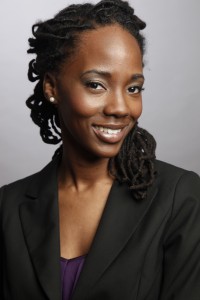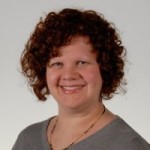Possibly more than in any other field, establishing a positive reputation is especially true in public relations. Everyday PR practitioners are working with clients, media, vendors, service providers or other PR pros as they work to get their job done. With the responsibility of working with so many people, personalities and work ethics, the pressure is on for PR folks to be “people-pleasers” and sometimes that task can seem impossible. As daunting it may appear, it is imperative that all PR practitioners ensure that a positive reputation is maintained or risk tarnishing their credibility as a professional, ruining their brand’s image or possibly even losing their job.
The field of public relations is evolving daily. As mentioned in the new PRSA definition for public relations, “Public relations are a strategic communication process that builds mutually beneficial relationships between organizations and their publics.” Therefore, the execution of the definition of public relations encourages PR pros to become thoughtful in behavior and in word to create a firm foundation for relationships to grow upon.
Here are traits that every PR practitioner should possess to build and maintain a positive reputation:
Credibility.
PR pros work closely with the media to garner interest in their client’s brand or product. In working with the media, it is important that relationships built with the media are based upon fact and never fluff. The more a journalist can observe your authenticity and find legitimacy in your story, the more likely a PR pro is able to leverage those connections and build confidence with their media contacts.
Reliability.
Clients want to work with PR pros who are reliable, who stick to their word and is available when news happens. Whether a client has breaking news or a crisis, clients should be able to rely on their PR pro to help get their targeted message to the public. This means that you should be accessible by phone, email or in person for your clientele. Do not go missing in action, avoiding or ignoring your clients. This is a swift way to watch your reputation sink.
Accountability.
Its easier for people to stake claim over accomplishments than mistakes. However, as a professional it is essential that accountability is taken for wins and for losses. Did you tweet incorrect client information? Did you misinform a journalist on client news? For any situation, PR pros must be willing to stand up to be applauded and humble when errors arise.
Honesty.
Honesty is always the best policy.
Teachable.
Through mentoring, “reverse mentoring” and a dedication to furthering your professional skills, remain teachable and keep learning. Consider APR certification or graduate school to advance your skills. Brush up on your social media knowledge. Attend PR conferences and participate in webinars. With more knowledge about your field and by learning new skills, your reputation as a PR pro will increase as clients and colleagues observe your professional growth.
Maturity
Often overlooked, maturity is a very critical trait PR pros require to handle the ups and downs and PR work. A level-headed PR pro can objectively assess situations and remain in charge without being guided by emotions and risk making poor work decisions. As I work in the field of entertainment PR, maturity is required for interacting with everyone from not-so-organized venue owners to passionate artists and even pushy management teams. Maturity develops with experience and is nurtured by understanding yourself and others while remaining accountable and responsible for your work.
An African proverb says, “Bad news travels around the world before good news puts it shoes on.” Don’t let a bad reputation precede your true talent and skills. Building relationships with clients, organizations and publics start with a favorable, positive referral. A good name is better than gold!
 Zaneta Chuniq Inpower is owner and president of Chuniq PR, an independent media and marketing management firm. Additionally, she is the digital communications coordinator for Douglas J Aveda Institutes and Salons, editor for Supreme Design Publishing and social media manager for COIN Handlers Management. Her personal interests include reading, international travel and culture and community revitalization. Inpower received her B.A. in advertising from Michigan State University. Zaneta Chuniq Inpower is a member of the Central Michigan PRSA chapter and is the PRSA New Professionals Section Executive Committee Blog Co-Chair.
Zaneta Chuniq Inpower is owner and president of Chuniq PR, an independent media and marketing management firm. Additionally, she is the digital communications coordinator for Douglas J Aveda Institutes and Salons, editor for Supreme Design Publishing and social media manager for COIN Handlers Management. Her personal interests include reading, international travel and culture and community revitalization. Inpower received her B.A. in advertising from Michigan State University. Zaneta Chuniq Inpower is a member of the Central Michigan PRSA chapter and is the PRSA New Professionals Section Executive Committee Blog Co-Chair.





